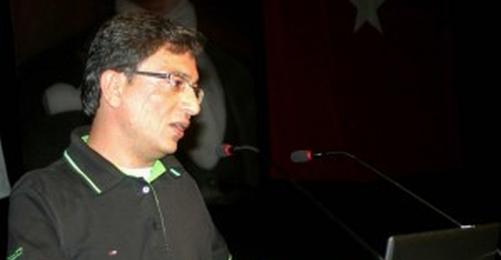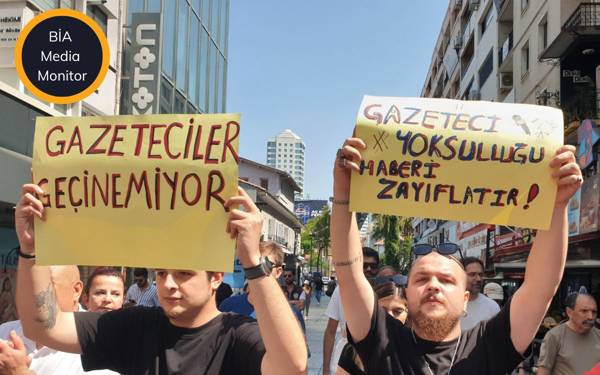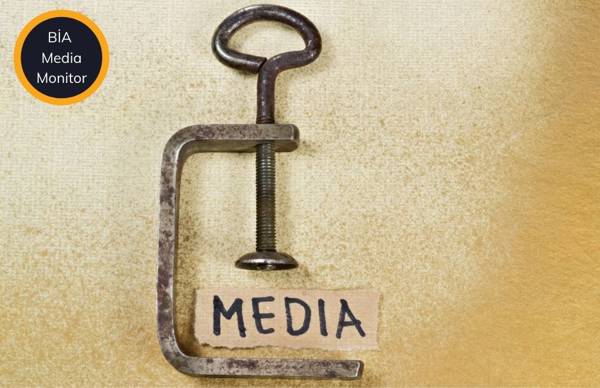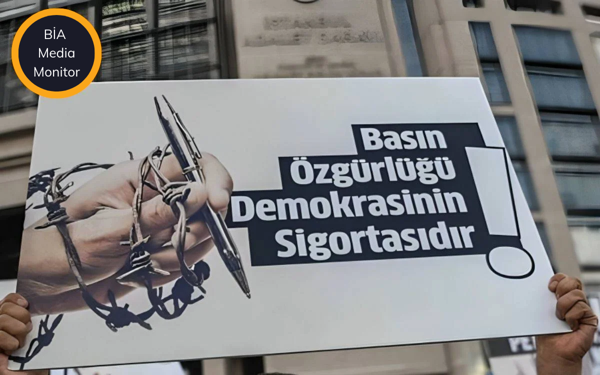Journalist Sentenced for Criticizing Head of Chamber

The 2nd Criminal Court of First Instance in Gaziantep (eastern Mediterranean) handed down a three-month prison sentence to journalist Murat Güreş. He was found guilty of "insult via the media" of Ömer Küsbeoğlu, President of the Union of Chambers of Tradesmen and Craftsmen.
On 12 October, the court decreed to convert the prison sentence into a monetary fine of TL 3,480 (approx. € 1,750). He has to pay a further TL 1,000 (€ 500) for the attorney's fee. Güreş is the editorial manager of the Gaziantep Hakimiyet newspaper ('Gaziantep Sovereignty') from Gaziantep at the eastern tip of the Mediterranean coast.
Güreş: Judgement should be pronounced so I can file an appeal
Güreş told bianet that he would not accept the postponement of the pronouncement of judgement and that he was expecting to be notified of the reasoned decision because he was going to file an appeal. He was convicted according to Article 125 of the Turkish Criminal Law (TCK).
In his writing subject to the trial, Güreş criticized the administrative attitude which he claimed to be stemming from Küsbeoğlu as a member of the steering board of the Chamber of Tradesmen. The chamber represents almost 100,000 tradesmen. According to Güreş, as an organization for tradesmen and profession, the chamber should be an element of pressure on the political power within the principle of the separation of powers in a democracy.
CHP deputy became AKP provincial deputy chair
Güreş furthermore criticized Küsbeoğlu on the grounds of his political career, saying, "he previously used his representative power as a deputy of the Republican People's Party, then he took a sharp turn and became the Provincial Deputy Chair of the [ruling] Justice and Development Party".
"For the acknowledgement of the right to inform and to criticize, as a journalist I am aware that news regarding disclosure or criticism should be true and up-to-date, the statement should be of public interest and benefit, the style of the news should be intellectually connected to the topic, should not harm personal rights and be well-considered", Güreş stated.
Disturbing thoughts also part of freedom of thought
In his defence, Güreş claimed that he fulfilled the necessary right of the public to be informed. The journalist referred to the Handyside decision given by the European Court of Human Rights (ECHR) on 7 December 1976 and to the Sunday Times decision from 26 April 1979. However, the court was not convinced.
The ECHR points out that not only harmless thoughts should be considered within the scope of freedom of thought but also thoughts that deeply shock and disturb the public. (EÖ/VK)
BİA MEDIA MONITORING REPORT 2024
The government made journalists' lives a living hell in 2024

BİA MEDIA MONITORING/OCTOBER-NOVEMBER-DECEMBER 2024
Truth concealed through repression from all sides targeting journalists

BİA MEDIA MONITORING REPORT
Just silence the journalist, and I won't touch you!

BİA MEDIA MONITORING APRIL-MAY-JUNE 2024
Journalists are on the target and have no legal security anymore!

BİA MEDIA MONITORING REPORT
The era of 'judicial control' confinement and torture in journalism









